The Results Are in on the World’s Handling of the War in Ukraine
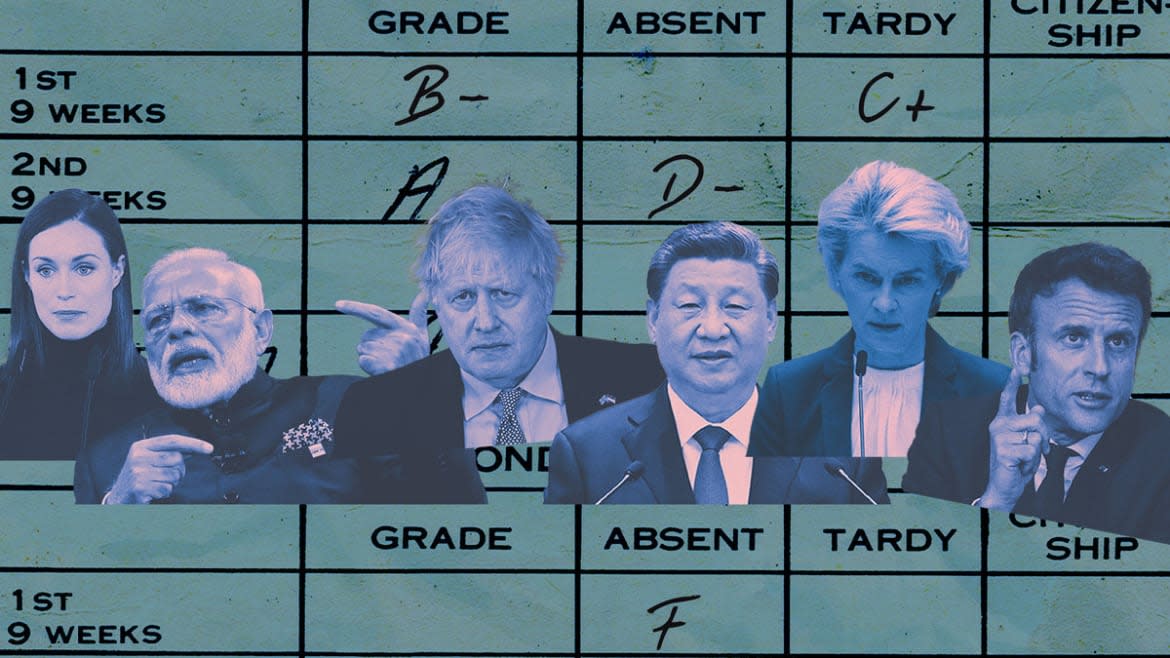
- Oops!Something went wrong.Please try again later.
- Oops!Something went wrong.Please try again later.
Crises reveal the true character of leaders. They are the crucibles in which their strength and abilities are tested and their defects are exposed. The bigger and more challenging the crisis, the more we learn.
Two months have passed since Russia massively expanded eight years of tensions against Ukraine with a brutal, illegal invasion that has shaken the geopolitical landscape to its foundations. In the course of those two months we have seen the depravity of Russia’s armed forces, the ingenuity, courage and resilience of the people of Ukraine, and a number of long-standing assumptions about the nature of the post-Cold War world shattered.
We have also seen leader after leader worldwide confronted with difficult choices and the opportunity to lead, to choose sides, to fight for what is right or to enable and support war criminals as they displayed their contempt for both life and the international order.
At this point, we have learned enough to provide a first pass at evaluating how those leaders are doing. Here’s an assessment of how the most noteworthy among them have distinguished themselves for better or for worse in the course of what must certainly be seen as one of the darkest chapters in the recent history of Europe.

President Volodymyr Zelensky of Ukraine.
Volodymyr Zelensky, president of Ukraine—No greater star nor a more unlikely one has emerged from this crisis so far. Zelensky is a relative political neophyte who was struggling to master his brief during the two years before Russia launched its massive escalation of its assault on Ukraine that began in 2014. In the weeks before the invasion, he dismissed warnings that it was imminent. And then, the moment it began, he was seemingly transformed. He rejected offers to leave the country with bravado saying, “I don’t need a ride, I need ammunition.” Dressed in combat gear, he offered videos that captured, communicated and added to the spirit of his entire country. He spoke to foreign leaders via video pleading his case. He spoke before parliaments, the US Congress and to the global audience for awards shows. He effectively led his government and military but he did more than that, he became a global symbol of the fight for freedom and democracy against monstrous tyrants like Putin. Further, under his leadership Ukraine has thus far stymied the aggression of its much larger neighbor, won the Battle of Kyiv, and forced Putin to vastly downsize his ambitions in Ukraine. This war has a long way to go. Zelensky is just one man. The challenges ahead will be great. But if there is a man of the moment, a transcendent figure produced by this crisis and one who deserves the acclaim he has won, it is the former comedian and media executive turned president of Ukraine. (Grade: A+)
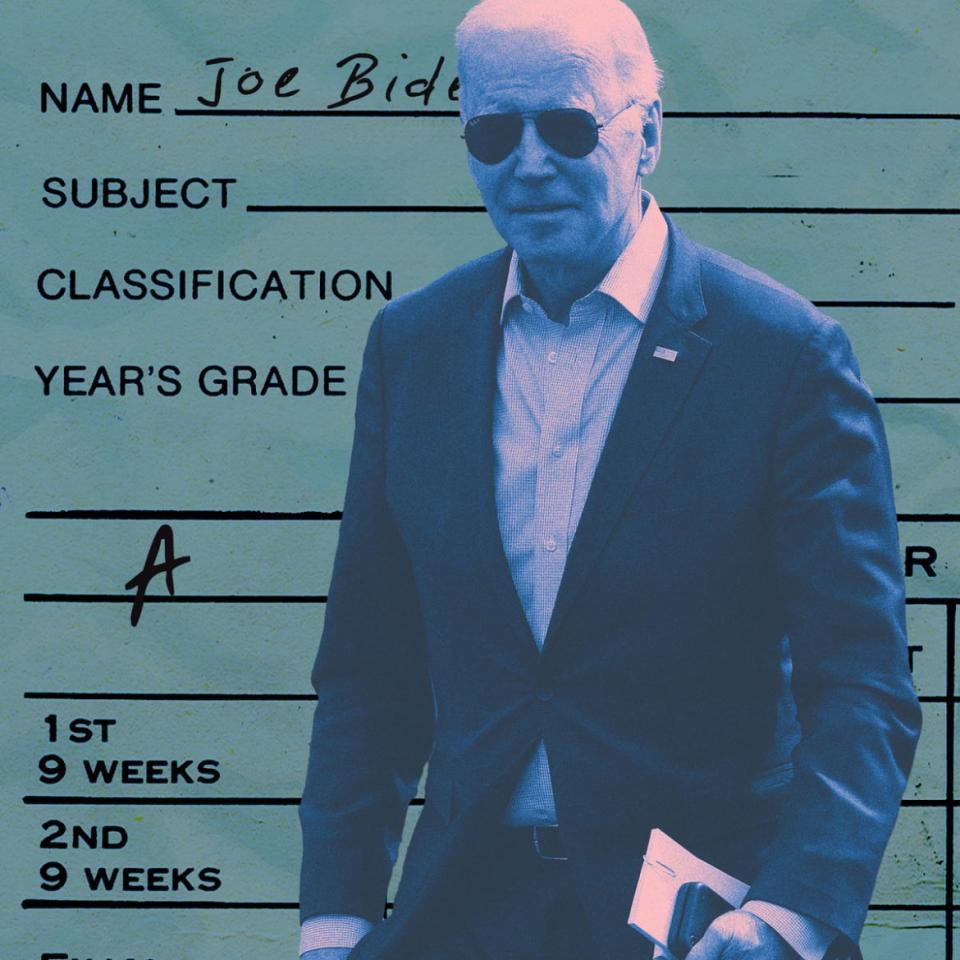
U.S. President Joe Biden.
Joe Biden, president of the United States—So, it turns out having foreign policy experience matters. Biden, who had more than anyone elected to the US presidency in history, has certainly shown that during the Ukraine crisis. Under his leadership, the US has provided Ukraine with more than $3 billion in military aid since the February invasion with Congress recently authorizing a total of $13.6 billion to support Ukraine militarily, to aid humanitarian efforts and to bolster the strength of NATO. Biden has rallied NATO—with the support of his Secretary of State Antony Blinken, his Secretary of Defense Lloyd Austin, his National Security Advisor Jake Sullivan, and the rest of his administration in a well-coordinated effort. The US has used releases of intelligence cannily as well as diplomacy to bring the 30 members of NATO along and provide remarkably unified, strong support for Ukraine. Biden has not been rattled by Putin’s threats, has carefully avoided unnecessary escalation and has adapted his policies swiftly as circumstances have warranted. (Witness regular upgrades to aid packages such as the most recent which was announced on Thursday of this week. The strength he has shown versus Putin in terms of sanctions imposed, aid provided to Ukraine and coordinated actions with allies vastly outstrips anything displayed by George W. Bush in the wake of Putin’s invasion of Georgia in 2008 or Barack Obama in the wake of Putin’s support of Assad in Syria or his original 2014 invasion of Ukraine and reveals the repugnant nature of Donald Trump’s obsequious groveling before Putin and his constant defenses of the Russian despot. Biden is low key and unflappable. But his performance in this case has been one of the very best by a U.S. president on the international stage in decades. (Grade: A)
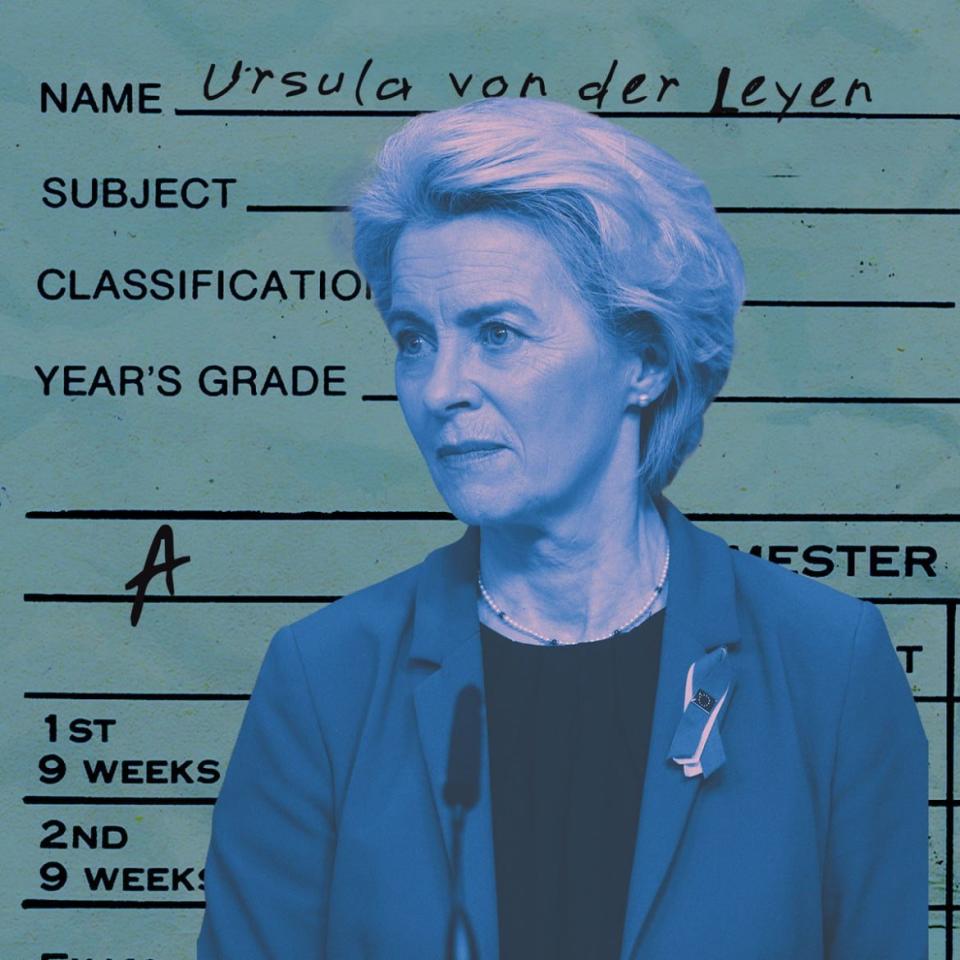
European Commission President Ursula von der Leyen.
Ursula von der Leyen, president of the European Commission—While some of von der Leyen’s German colleagues have not covered themselves with glory during this crisis, the former German defense minister has distinguished herself by being one of the strongest international voices for swift action on Ukraine. She has condemned Russian atrocities. She has led efforts to commit substantial economic assistance for Ukraine. She has visited Zelensky in Kyiv. And she has led efforts to fast-track Ukraine admission into the EU. In addition, she has been one of the key leaders working to maintain unity within the often fractious European community. (Grade: A)

NATO Secretary General Jens Stoltenberg.
Jens Stoltenberg, NATO secretary general—Like von der Leyen, Stoltenberg has played a central role in marshaling Western support for Ukraine. He has also overseen an on-the-fly rethinking of NATO’s role in the wake of Russia’s attack on its neighbor and Putin’s threats against Europe. He has overseen the redeployment of NATO troops toward its eastern frontiers. And he has had to prepare for the possibility that Russia might use its most deadly weapons in this conflict. At the same time, he has helped prepare the way for NATO consideration of the possible applications of Finland and Sweden to join its ranks. NATO has not looked as strong or effective as an alliance as it does today. That is saying something given that not too long ago, many were wondering about its future utility. (Grade: A)
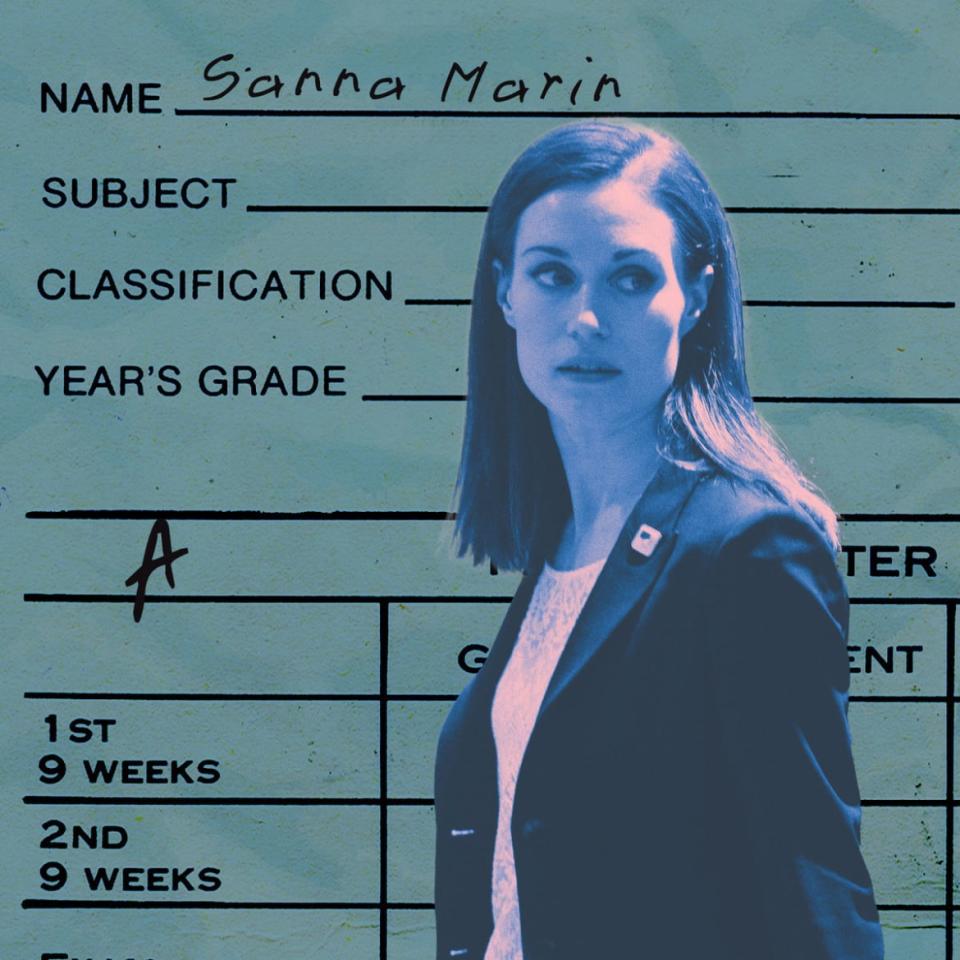
Prime Minister Sanna Marin of Finland.
Sanna Marin, prime minister of Finland, and Magdalena Andersson, prime minister of Sweden—These two nations have moved swiftly to consider doing the once unthinkable and joining NATO in the wake of Russia’s attack on Ukraine. (See above.) They have done this in the face of Russian threats. And they have done so as a consequence of a massive reversal in domestic public opinion in both countries. The move would strengthen NATO’s northern flank in key ways and would mark one of the biggest transitions in the alliance’s recent history. (Grade: A)
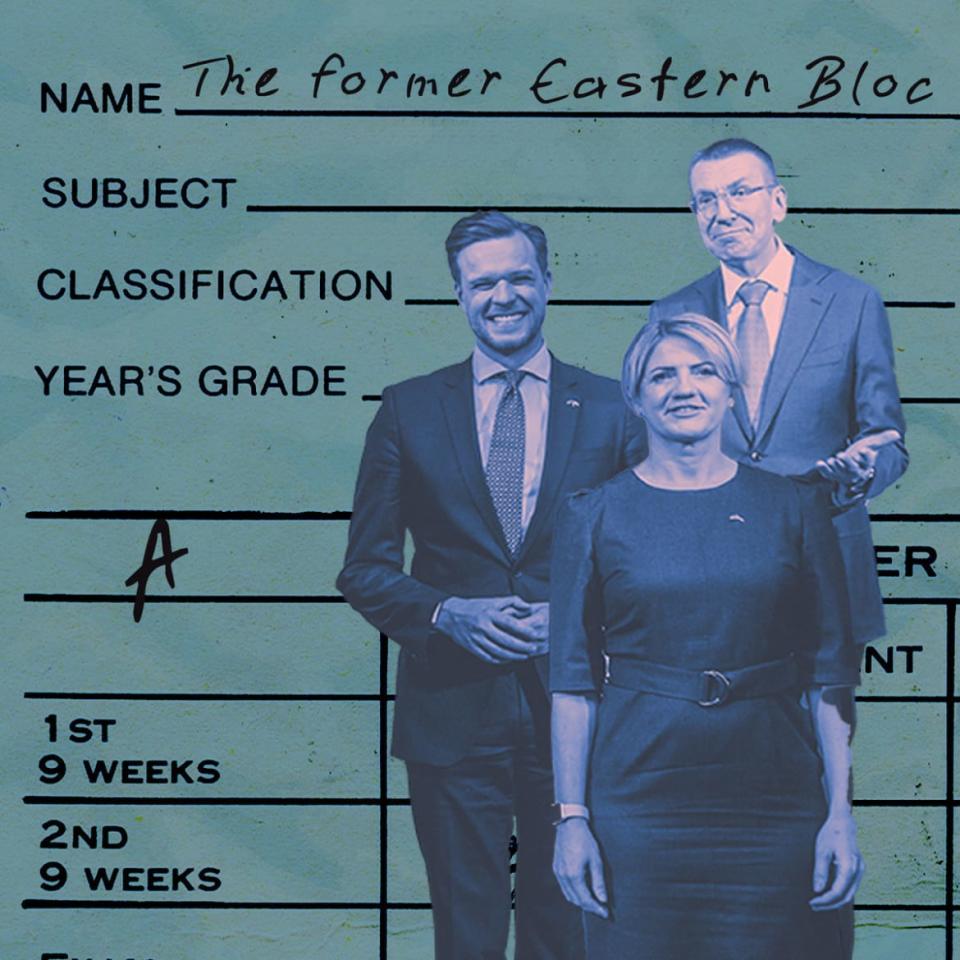
Foreign Ministers Gabrielius Landsbergis of Lithuania, Eva-Maria Liimets of Estonia, and Edgars Rinkēvičs of Lithuania.
The leaders of the former states of the Eastern Bloc—With few exceptions (see below) the leaders of states that were once in the Eastern Bloc have distinguished themselves during this crisis as activists within Europe urging support of Ukraine and strength against Putin. These countries feel the Russian threat most acutely both because of their past under Soviet domination and because of Putin’s recent threats that made it clear that his ambitions were unlikely to stop at Ukraine. The Baltic states, Estonia, Latvia and Lithuania, have long felt especially vulnerable to Russian aggression. Since the Russian attack on their neighbor they have been among the leaders in not just calling for NATO action but, despite their size, providing meaningful support to Ukraine. Similarly the Czechs and Slovaks have provided disproportionate support. And perhaps no other nation has done more for Ukraine’s refugees than Poland, now hosting 3 million of them (although kudos to all nations who have stepped up the challenge of absorbing the more than 5 million people who have fled the war torn country–Two other former Warsaw Pact countries, Hungary and Romania, are among the leaders here.) (Grade: A… but see below)
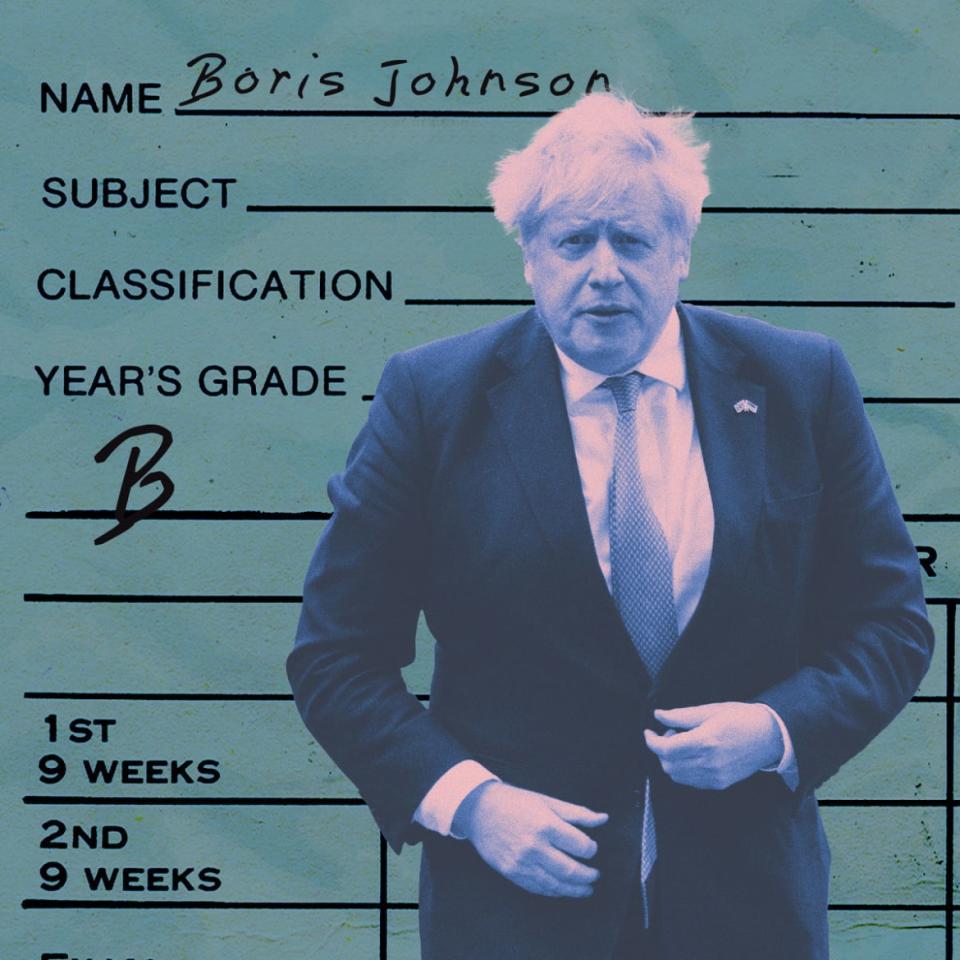
Prime Minister Boris Johnson of the United Kingdom.
Boris Johnson, Prime Minister of the United Kingdom—While Johnson has gone to Kyiv and been publicly supportive of Zelensky and Ukraine and Britain has provided some important weapons systems to Ukraine, Britain’s leader loses points for his country’s foot dragging when it comes to accepting Ukrainian refugees. This is perhaps consistent with Britain’s otherwise pretty repulsive immigration policies but at this moment of great need, it is a clear failing in the country’s Ukraine policies. (Grade: B)
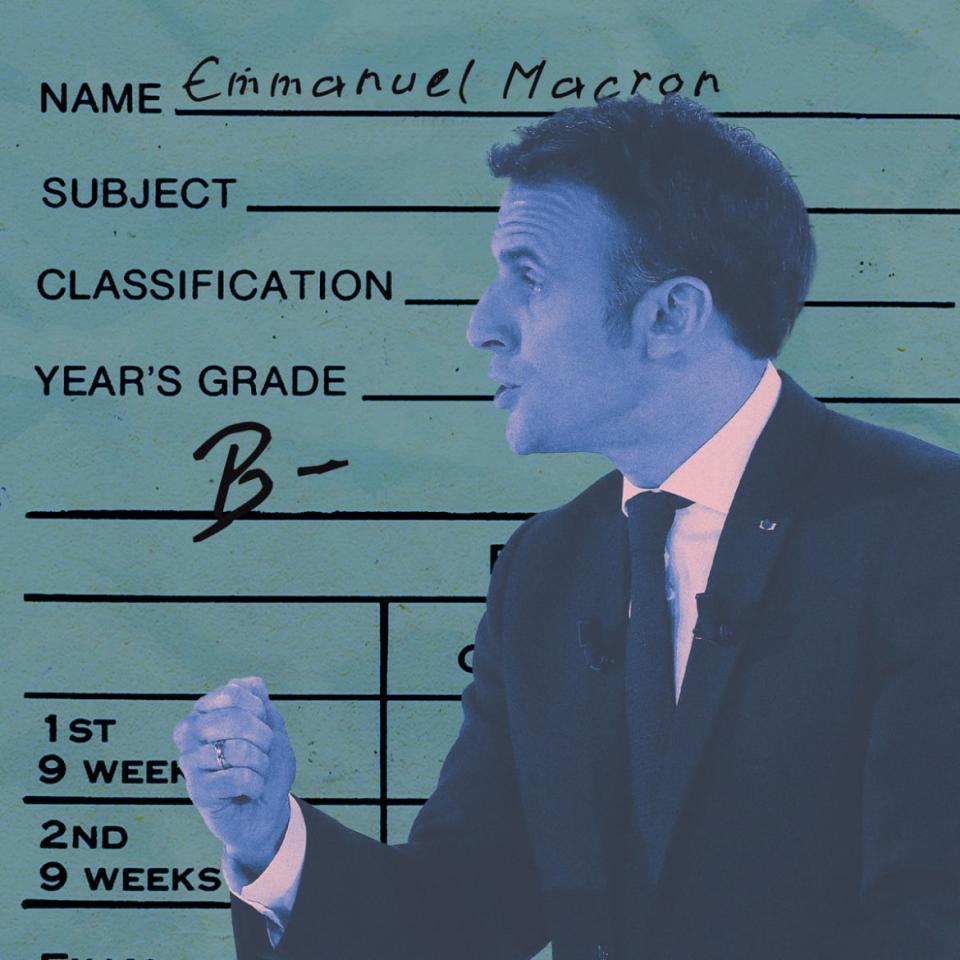
President Emmanuel Macron of France.
Emmanuel Macron, President of France—Macron is a far cry better than his current challenger for France’s top job, Marine Le Pen, a right-wing Putin acolyte would-be. But in his desire to establish himself as the voice of an independent European foreign policy, Macron spent the early parts of this crisis trying to frame himself as a “reasonable” alternative among Western leaders and as a result he was repeatedly played by Putin. France has also lagged in providing arms in Ukraine and has framed its arms shipments in a strangely conciliatory way to the Russians. (Grade: B-)
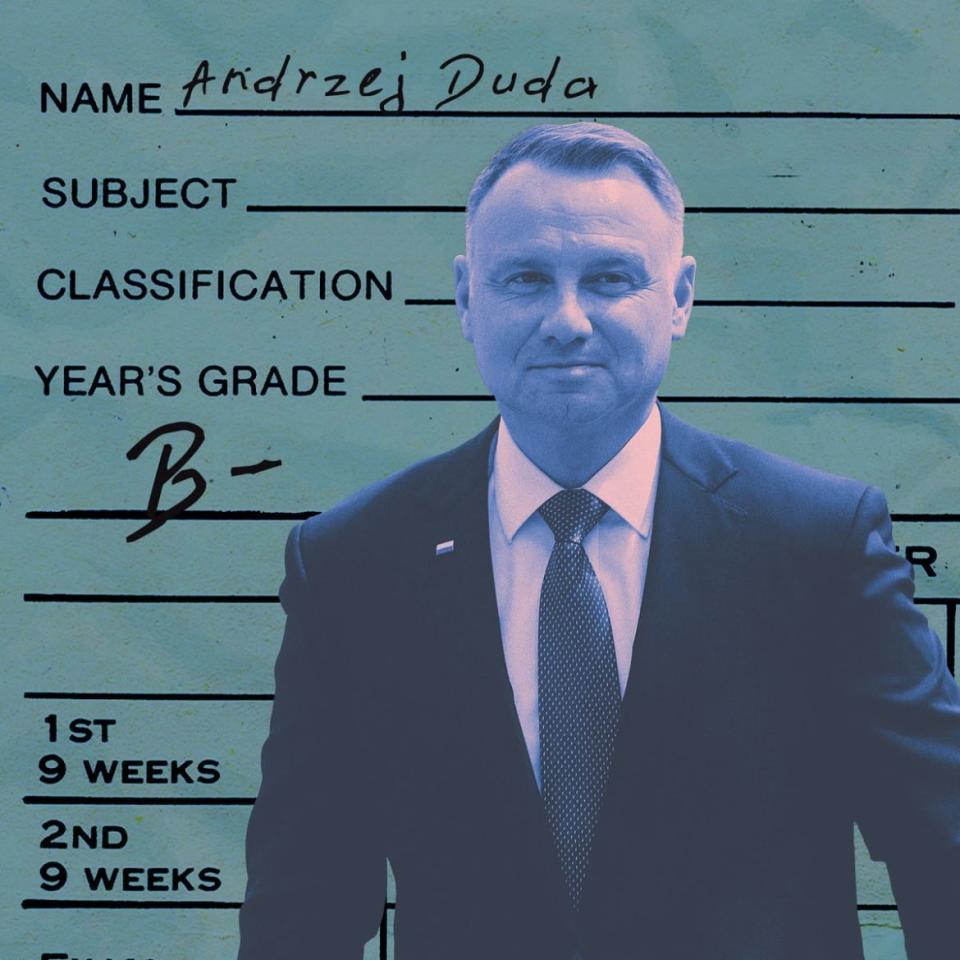
President Andrzej Duda of Poland.
Andrzej Duda, president of Poland—As I noted above, Poland deserves huge credit for its support of Ukraine, especially on the refugee front. But the government of Andrzej Duda cannot be seen as a staunch defender of democracy vs. autocracy. Duda has carved away at democracy in his homeland from undercutting the independence of courts to limiting press freedoms. Maybe Duda is recalculating. For the moment he gets the benefit of the doubt because his government has undertaken such a heavy lift during this crisis. But the greater threat here is a battle in which he was on the wrong side for years. So, he has to be marked down and if he reverts after this is all over, well, the grade will again be much, much lower, as it would have been before Feb. 24. (Grade: B-*… this could change)

Chancellor Olaf Scholz of Germany.
Olaf Scholz, chancellor of Germany—In the days right after Russia’s invasion of Ukraine, Germany appeared to be in the midst of an historic about face on its defense policies. It reversed a decades-old policy to provide weapons to Ukraine. Germany also committed to increasing its defense budget substantially. And Germany agreed to shutter its controversial Nord Stream 2 pipeline to Russia. But since then Germany has frustrated Western plans to put economic pressure on Russia by continuing to spend billions buying Russian oil and gas. Scholz and German weapons shipments to Ukraine have been deeply disappointing. Scholz has appeared weak and, paradoxically given history, has made Germany’s Green Party, once seen as soft on such issues, especially German Foreign Minister Annalena Baerbock, seem stronger by comparison. Definitely a mixed picture. (Grade: C)
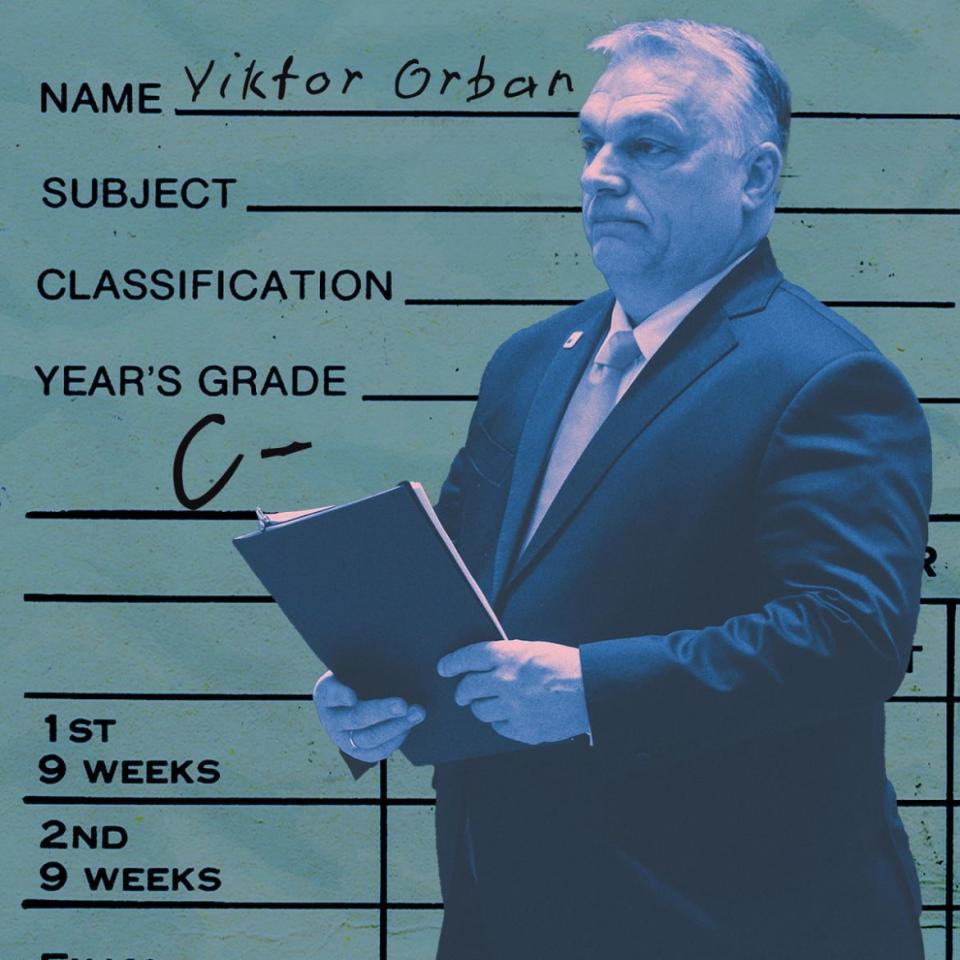
Prime Minister Viktor Orban of Hungary.
Viktor Orban, prime minister of Hungary—Yes, Hungary has accepted Ukrainian refugees and hosts a significant deployment of NATO troops. But Orban, who is the European leader closest to Putin, has been a vocal critic of Ukraine’s President Zelensky, whom he characterized as part of the “international left” and its opposition to the Hungarian politician’s reelection campaign. Lumping the Jewish Zelensky in with financier George Soros and a globalist conspiracy against him was, of course, an anti-Semitic dog whistle. Orban has continued to undercut Hungarian democracy. And he has opposed EU sanctions on Russian oil. While he gets some credit for softening his support for Putin, he is still a dangerous and odious figure. (Grade: C-)
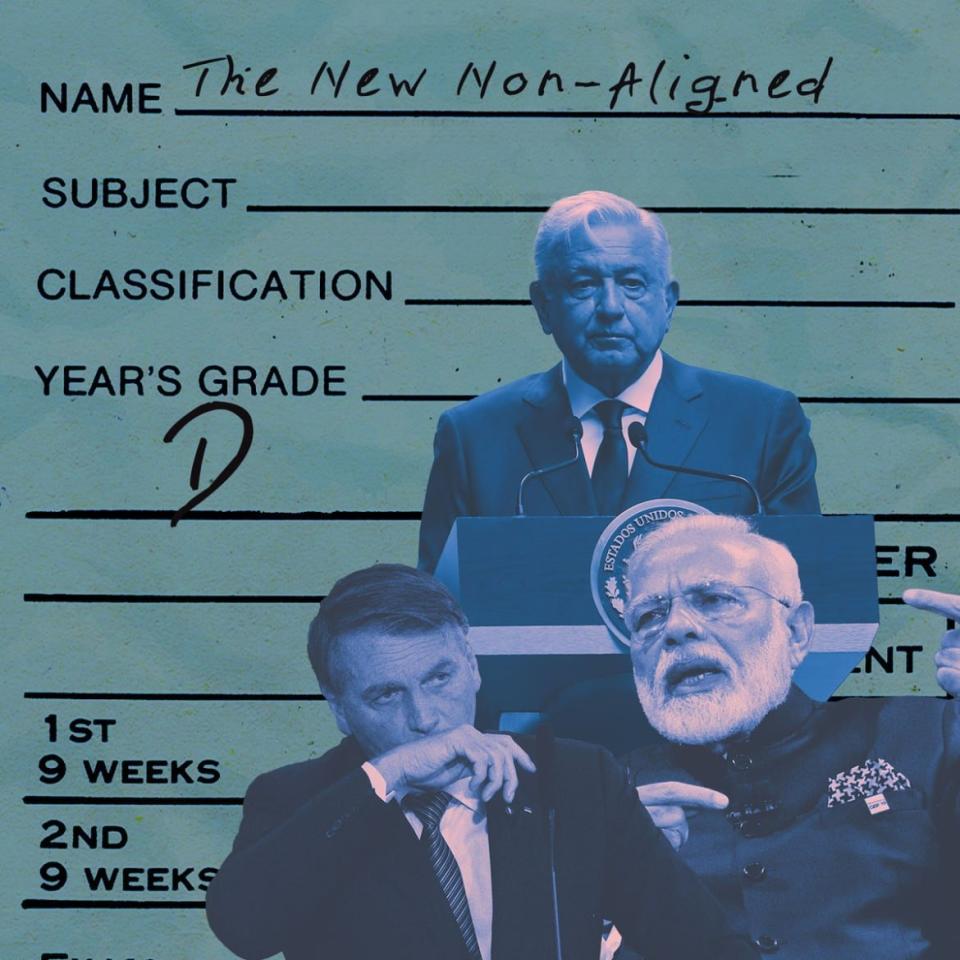
President Andrés Manuel López Obrador of Mexico, President Jair Bolsonaro of Brazil, and Prime Minister Narendra Modi of India.
The leaders of the “new non-aligned”—While the issues associated with the war in Ukraine are as clear cut as can be, many nations around the world have refused to “take sides.” Some, like India, have done this because of historical ties with Russia. Some, like the oil producing countries of the Middle East have done this because they have economic interests that are closely aligned with Russia and/or because they want to distance themselves from being too closely aligned with the US and the West. Israel doesn’t produce oil but Russian oligarchs play a big role in the Israeli economy and since Bibi Netanyahu, Israel has sought close ties with Moscow. Others like Mexico and Brazil have leaders who are simply morally adrift. Here’s the reality: Russia violated international law when invading Ukraine. It has serially committed war crimes and crimes against humanity. It has used weapons banned by international law. It has rebuffed all attempts at diplomacy. It has lied. It has behaved repulsively. Ukraine is innocent. Ukraine never posed any threat to Russia. Ukraine is only seeking to defend itself. There are two sides to many international crises. Foreign policy is complicated. Not in this instance. Russia is in the wrong. Ukraine is the victim. And the leaders of these nations, while perhaps thinking they were acting in their national interests, have made the world a more dangerous place by failing to place pressure on Russia to stop and to honor international laws. (Grade: D)
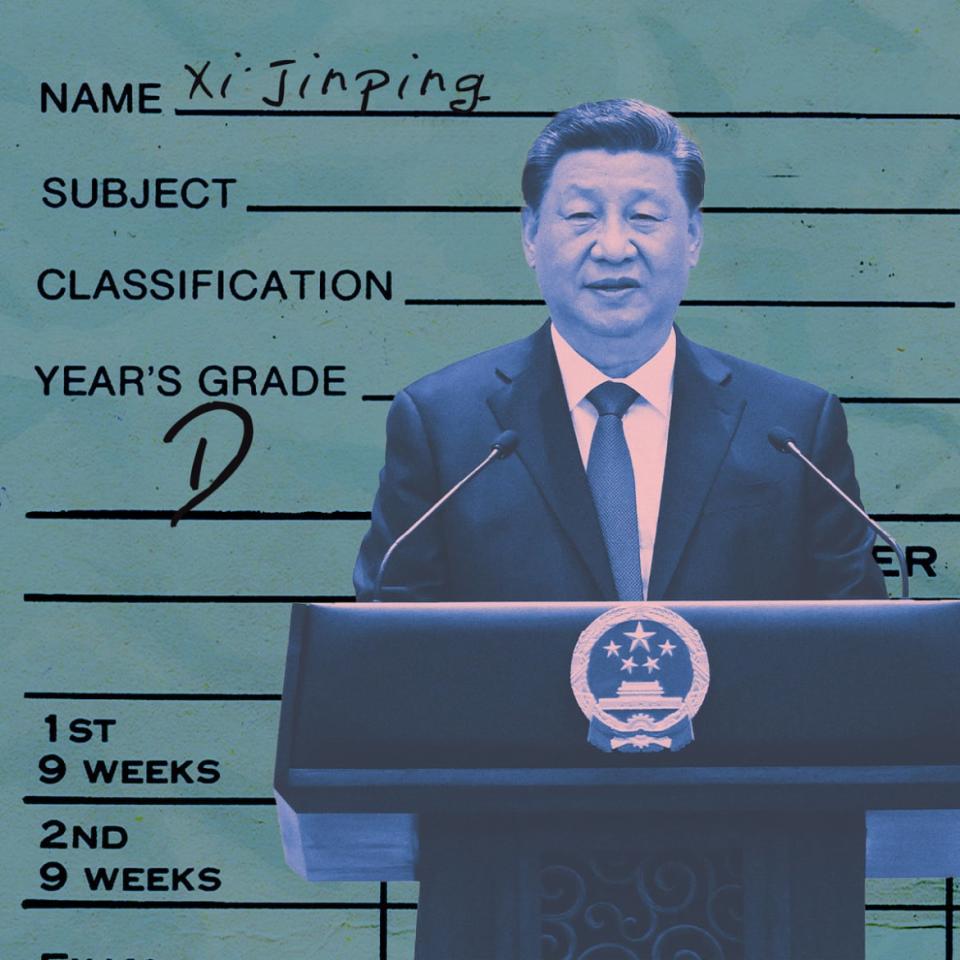
President Xi Jinping of China.
Xi Jinping, president of China—Long before this crisis began, Xi met with Putin and they declared that they were “best friends.” The two leaders have formed a security partnership based on history and a worldview that includes a common aspiration for diminished U.S. and Western influence. It was hoped that China might serve a moderating influence on Putin and encourage him to contain or end the crisis in Ukraine. So far, to our knowledge, that has not happened. Instead, China’s propaganda mills are pumping out Putin-fabricated lies about what is happening in Ukraine. China is seen as an economic support for Russia during the crisis. And it has been speculated that China might provide military aid to Moscow in response to Russian requests. That said, Russia’s bad performance in Ukraine has not been good for China (nor very promising for their security partnership… even if Russia always had been seen in Beijing as a much junior partner). So, it is possible that China may be or could play a constructive role in bringing this crisis to an end more quickly. And, China has pledged to help Ukraine rebuild. We can hope that they rise to the challenges their increasingly important leadership role demands. But so far, the best we can give them is… (Grade: D)
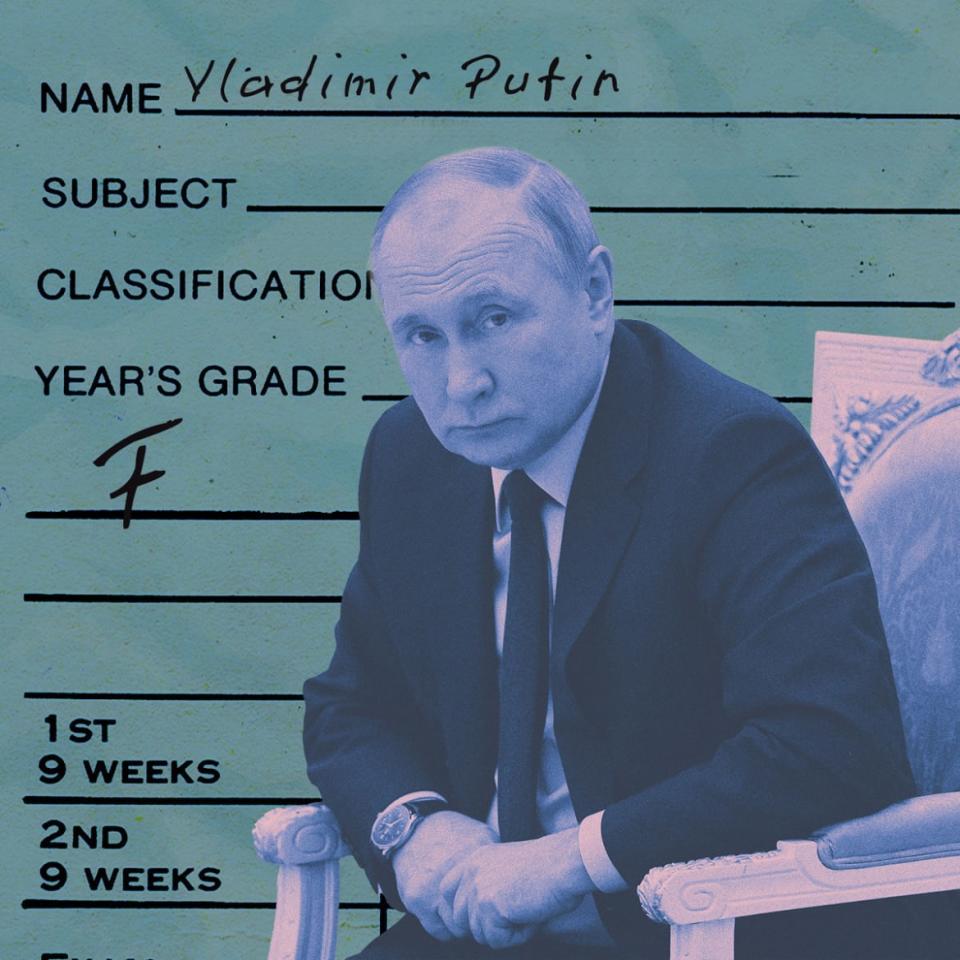
President Vladimir Putin of Russia.
Vladimir Putin, president of Russia—Putin has always been a lousy president of Russia. The economy has been more or less stagnant and is now in crisis. He has brutally suppressed dissent at home and abroad, arresting and killing his opponents. And to distract his people he has waged a series of horrifying international campaigns that have included leveling cities and invading neighbors, from Grozny to Aleppo, from Georgia to Ukraine. But of all Putin’s leadership failures, of all his crimes, it is likely that his unprovoked invasion of Ukraine and his wholesale slaughter of its citizens will be seen as the worst. It will also likely be seen as his greatest blunder—from military miscalculations to underestimating the resolve of the West to hold him accountable. The people of Ukraine and of Russia will both be paying for his disastrous rule for decades to come. Let us hope that he too is held accountable for his manifold crimes during that period. (Grade: F. It would be lower if there were a lower grade to give.)
Get the Daily Beast's biggest scoops and scandals delivered right to your inbox. Sign up now.
Stay informed and gain unlimited access to the Daily Beast's unmatched reporting. Subscribe now.

